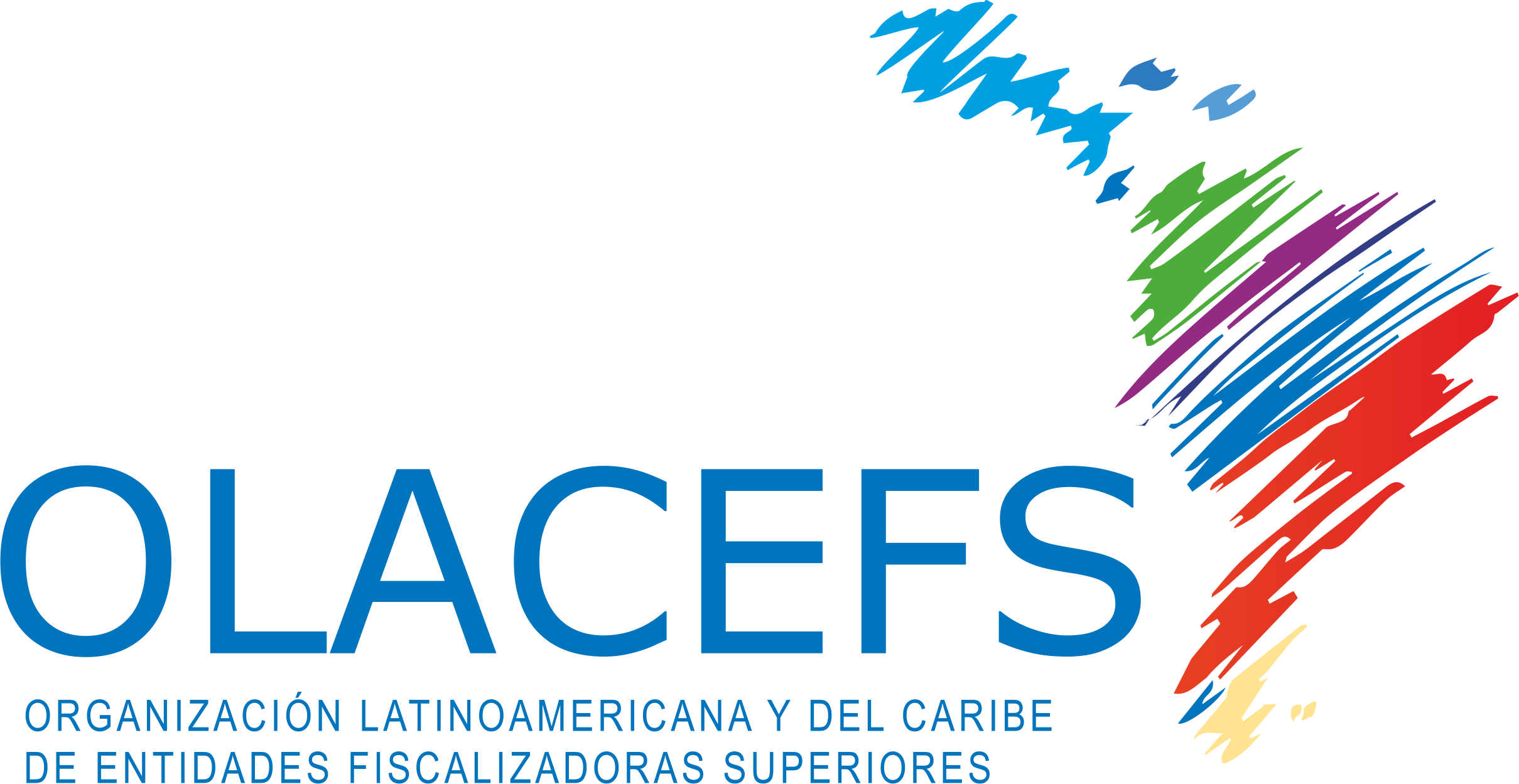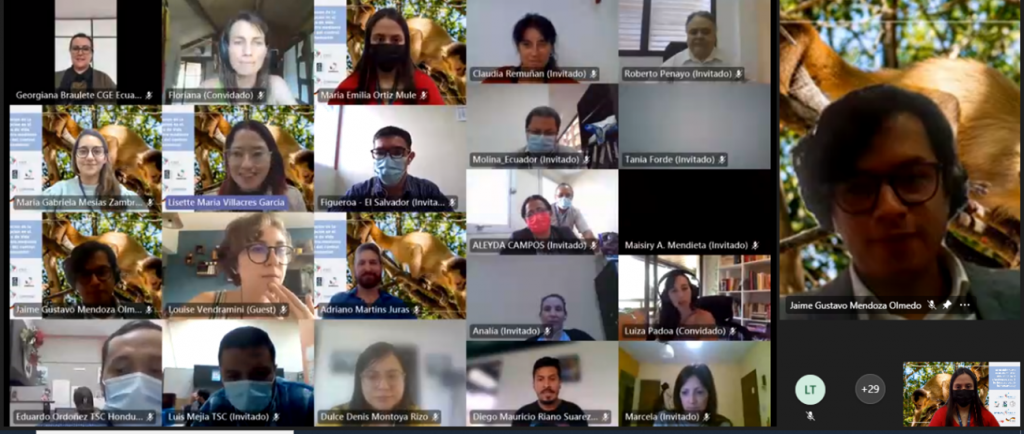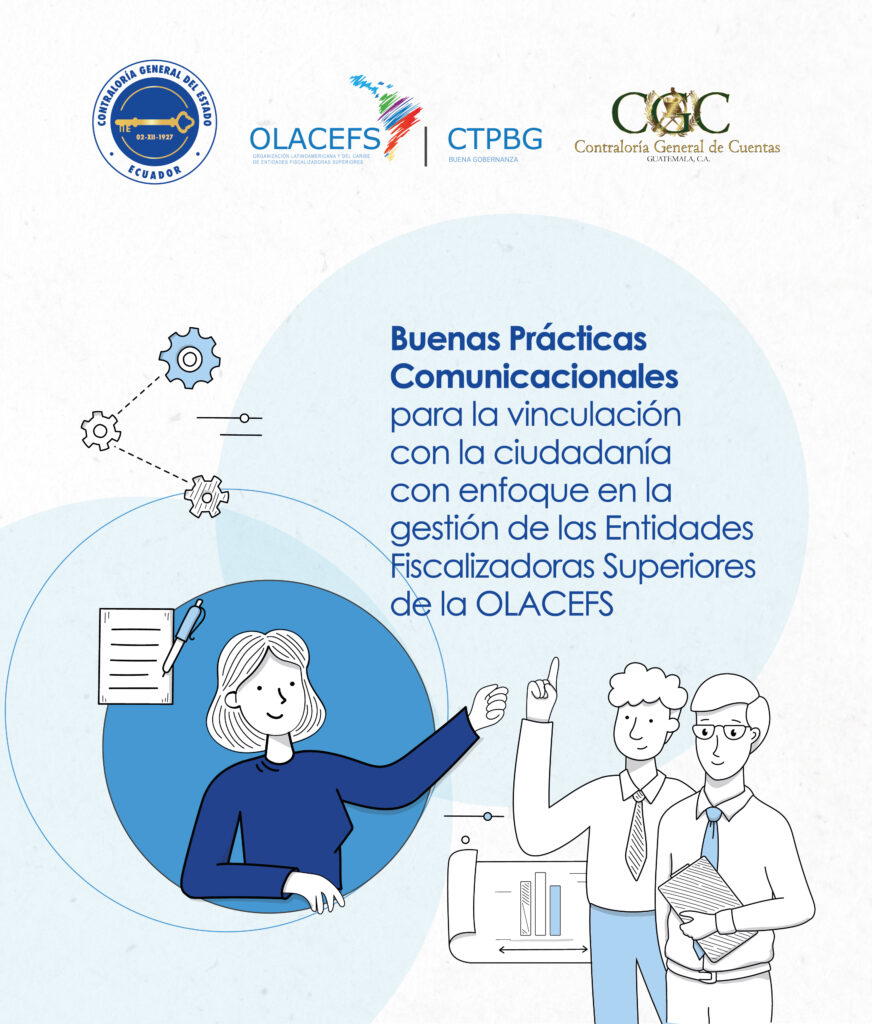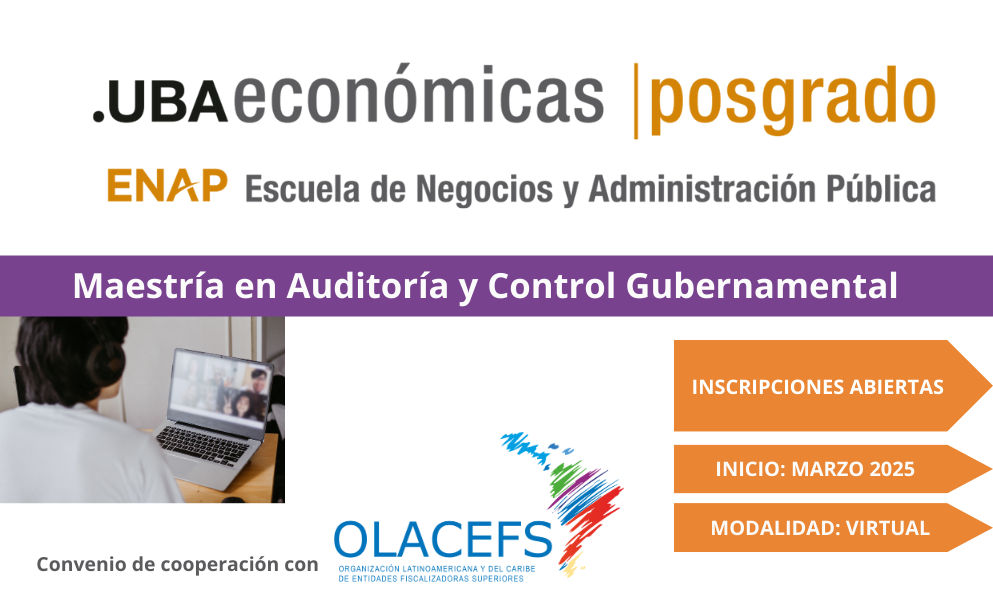The Presidency of the Technical Commission for the Fight against Transnational Corruption (CTCT) of OLACEFS, currently exercised by the Office of the Comptroller General of the Republic of Chile, the Office of the Comptroller General of the Republic of Ecuador, and the OLACEFS-GIZ Regional Anti-Corruption Project, led a virtual workshop on “Prevention of Wildlife Trafficking” with representatives of nine Supreme Audit Institutions (SAIs) that make up the CTCT of OLACEFS.
This event was held on March 24, with a space for exhibitions and deliberation among members of the environmental units of the participating SAIs.
Attorney Daniela Santana, representative of the Presidency of the CTCT, was in charge of the inauguration. In her speech, she emphasized the importance of speaking out against the illegal trade in species, recognizing the role that the SAI of Ecuador and the members of the Commission have played in this objective. She also remarked that SAIs are committed to auditing the 2030 Agenda, which already contemplates issues related to the protection of underwater and terrestrial life. She also indicated the existing links between corruption and the commission of this crime; an issue that is recognized in the reports of the United Nations Office on Drugs and Crime (UNODC).
This was followed by presentations by experts in the field. First, Attorney Adriano Juras, delegate of the Presidency of the OLACEFS Special Technical Commission for the Environment (COMTEMA), currently exercised by the Federal Court of Accounts (TCU – Brazil), commented on the benefits of coordinated audits, considering that they allow addressing transnational issues, maintaining a common language among the audit teams and building capacities in the participating SAIs. In this context, he explained some lessons learned from the Coordinated Audit on Protected Areas that he considered important innovations that can be replicated in future regional control actions
On the other hand, Attorney Inés Manzano, a reference in the field of environmental law in Ecuador, announced the ANIMALIA application where complaints can be made about the illegal possession of species in that country. He noted that the development of this application was possible thanks to the recognition of the rights of nature in Ecuador and the ratification of various international instruments for animal protection. In this way, she acknowledged several instruments that can be reviewed by SAIs such as CITES, the ICCWC Wildlife and Forest Crime Analytic Toolkit, and the EU Wildlife Trafficking Plan, among others.
During the workshop moderated by Eng. Jaime Mendoza of the Office of the Comptroller General of the Republic of Ecuador, the participating auditors analyzed the advantages or disadvantages of carrying out, on the one hand, a government control by emblematic species or, on the other hand, analyzing the institutional framework that must guarantee adequate management of wild flora and fauna. In that regard, it was felt that the institutional perspective is imperative to recognize institutions that must maintain controls that make it possible to mitigate illegal trafficking in species. Additionally, the workshop revealed that, although few SAIs have carried out audits on the management of wild flora and fauna, there is interest from the technical areas of the SAIs in the region to propose future control actions.
After the workshop, the CTCT will seek to continue with activities to promote the role of SAIs in the prevention of corruption in wildlife, such as the execution of national audits, the generation of spaces for coordination with environmental authorities, and the development of training.
Documents of interest:
· https://olacefs.com/gtct/document/methodologicaltools-control-export-flora-y-fauna/
If you have any suggestions please write to us at [email protected]





